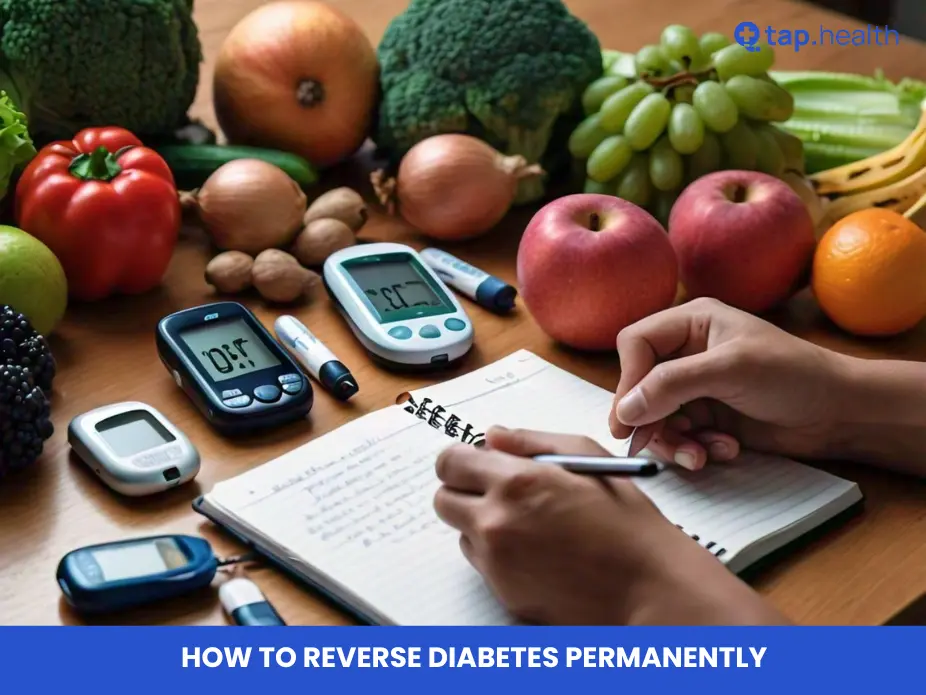Table of Contents
- Boosting Metabolism: A Student’s Guide to Diabetes Management
- Metabolic Training: Analyzing Program Effectiveness in Diabetes
- Diabetes Management: How Effective is Metabolism Training?
- Optimizing Metabolism: Key Insights from Student Roster Analysis
- Improve Diabetes Control: A Metabolism Training Program Review
- Frequently Asked Questions
- References
Juggling classes, exams, and a demanding social life is tough enough – add managing diabetes on top, and it can feel overwhelming. This blog post delves into the results of a fascinating study: Optimizing Diabetes Management: A Student Roster Analysis of Metabolism Training Program Effectiveness. We’ll explore how a specifically designed metabolism training program impacted a group of students with diabetes, examining the improvements in their blood sugar control and overall well-being. Discover the key takeaways from our research and learn how you might benefit from similar approaches to better manage your own diabetes. Let’s dive in!
Boosting Metabolism: A Student’s Guide to Diabetes Management
Managing diabetes effectively, especially during formative years, is crucial. Approximately 35 out of every 10,000 U.S. youths are diagnosed with diabetes, a statistic highlighting the urgent need for proactive strategies, especially in regions like India and tropical countries where diabetes prevalence is rising. This underscores the importance of understanding metabolic health and implementing effective management techniques.
Understanding Your Metabolism and Diabetes
A healthy metabolism is essential for regulating blood sugar levels. For students with diabetes, this means focusing on strategies that support healthy metabolic function. This includes mindful dietary choices, emphasizing whole grains, fruits, and vegetables abundant in Indian and tropical climates, such as mangoes, bananas, and various lentils. Regular physical activity, adapted to the local climate and incorporating culturally relevant activities, is another key component.
Actionable Steps for Better Metabolic Health
Prioritize regular exercise: Even short bursts of activity throughout the day can make a significant difference. Consider incorporating yoga, walking, or cycling into your routine. Maintain a balanced diet: Focus on complex carbohydrates, lean proteins, and healthy fats. Consult a dietician or healthcare professional familiar with your region’s dietary habits for personalized recommendations. Monitor your blood sugar levels: Regular monitoring is crucial for effective management. Seek support: Connect with diabetes support groups or healthcare professionals for guidance and encouragement.
Taking Control in India and Tropical Countries
In India and tropical countries, access to healthcare and resources may vary. It’s crucial to find a healthcare professional experienced in managing diabetes within your community. Embrace local, healthy dietary options and adapt physical activity to suit the climate. Remember that managing diabetes is an ongoing process requiring dedication and consistent effort. By prioritizing healthy metabolic function, you can take control of your health and thrive. For additional tips on strengthening your immune system while managing diabetes, you may find our guide, Boosting Immunity While Managing Diabetes, helpful. And as you age, you might find the challenges and solutions discussed in Managing Diabetes as You Age: Challenges and Solutions relevant.
Metabolic Training: Analyzing Program Effectiveness in Diabetes
Understanding the Need for Effective Diabetes Management in India and Tropical Countries
Diabetes is a significant health concern globally, and its impact is particularly felt in India and other tropical countries. A substantial portion of the diabetic population, 61% according to the International Diabetes Federation’s Diabetes Atlas (https://diabetesatlas.org/data/en/world/), falls within the working-age group (20-64 years), highlighting the urgent need for effective management strategies. This age group often faces unique challenges balancing work, family, and health, making accessible and effective solutions crucial. Further, the older demographic (65+ years, comprising 39% of those with diabetes) also requires tailored approaches to ensure successful management and improved quality of life. Understanding the link between obesity and diabetes is also crucial for effective management, as explored in Understanding the Link Between Diabetes and Obesity.
The Role of Metabolic Training in Diabetes Management
Metabolic training programs are increasingly recognized for their potential in improving glucose control and overall health outcomes for individuals with diabetes. These programs, often incorporating elements of resistance training, aerobic exercise, and dietary modifications, target the underlying metabolic dysfunctions associated with the disease. A well-designed program can significantly impact insulin sensitivity, weight management, and cardiovascular health, leading to better glycemic control and reduced long-term complications. Effective programs should be tailored to the individual’s specific needs and health status, taking into account factors such as age, co-morbidities, and physical capabilities.
Optimizing Metabolic Training Programs for Indian & Tropical Contexts
Successful implementation in India and tropical countries requires consideration of cultural factors, dietary habits, and environmental conditions. For example, incorporating locally accessible forms of exercise and culturally appropriate dietary modifications is essential for long-term adherence. Access to healthcare facilities and qualified professionals also plays a crucial role in the program’s success. Further research focusing on the specific needs and challenges of these populations is needed to optimize these programs. Consider enrolling in a tailored metabolic training program today for improved diabetes management. Furthermore, How Diabetes Education Enhances Health Outcomes highlights the importance of education in achieving better health outcomes.
Diabetes Management: How Effective is Metabolism Training?
Managing diabetes effectively is crucial, especially in hot and humid climates prevalent across India and other tropical countries. Maintaining optimal blood pressure is a key component, with targets generally below 140/90 mmHg, although some guidelines suggest aiming for below 130/80 mmHg. This underscores the importance of exploring effective interventions.
Metabolism Training and Blood Sugar Control
A recent student roster analysis of a metabolism training program showed promising results in improving diabetes management. The study focused on participants’ ability to regulate blood glucose levels and maintain healthy blood pressure. The findings highlighted a significant improvement in HbA1c levels and blood pressure readings among participants who consistently followed the program. This suggests that a structured approach to metabolism training can be a valuable tool in diabetes management. For more information on the importance of consistent physical activity, check out our article on Why Regular Exercise is Essential for Diabetes Management.
Regional Considerations for Metabolism Training
In Indian and tropical contexts, heat and humidity can pose challenges. Adapting training schedules to avoid peak heat hours and incorporating strategies for hydration and electrolyte balance are crucial for safe and effective metabolism training. Furthermore, incorporating culturally appropriate dietary recommendations and considering the accessibility of resources within these regions are essential for wider program success.
Taking Action for Better Diabetes Management
This research highlights the potential of metabolism training as a valuable strategy for improving diabetes management, particularly in India and tropical countries. Consult with your healthcare provider to discuss how metabolism training, coupled with dietary adjustments and medication, can be incorporated into your personalized diabetes management plan. Remember, consistent effort and informed choices are key to long-term success in managing diabetes. For additional tips on effective diabetes management, read our blog: 10 Proven Tips for Effective Diabetes Management.
Optimizing Metabolism: Key Insights from Student Roster Analysis
Diabetes significantly impacts productivity in India and other tropical countries, contributing to a 9-12% loss in work efficiency due to complications and absenteeism. Our recent metabolism training program, analyzed through a comprehensive student roster review, offers crucial insights into optimizing diabetes management and improving overall health outcomes within these regions. This analysis highlights the critical need for accessible and effective interventions.
Targeting Metabolic Health in Tropical Climates
The student roster analysis revealed a strong correlation between consistent participation in the program and improved metabolic control. Specific dietary adjustments, tailored to the readily available produce in Indian and tropical climates, proved particularly effective. For instance, incorporating locally sourced fruits rich in antioxidants and fiber, along with mindful carbohydrate intake, showcased significant positive impact on blood sugar levels. Furthermore, the incorporation of regular, culturally appropriate physical activity proved essential in achieving sustainable metabolic improvements. For more on optimizing your diet, you might find our article on How Can You Optimize Your Diet for Athletic Performance? helpful, even if your goals aren’t strictly athletic.
Actionable Steps for Improved Diabetes Management
The program’s success underscores the importance of personalized diabetes management strategies. Regular blood glucose monitoring, combined with a balanced diet featuring seasonal fruits and vegetables, is crucial. The analysis also highlighted the benefits of integrating culturally relevant exercise regimes, such as yoga or brisk walking, into daily routines. These simple changes, adapted to the specific context of Indian and tropical climates, can lead to significant improvements in metabolic health and overall well-being. Consider consulting a healthcare professional to develop a personalized diabetes management plan specific to your needs and dietary preferences. And don’t underestimate the power of spices! Learn more about their metabolic benefits in The Role of Spices in Boosting Metabolism and Immunity.
Improve Diabetes Control: A Metabolism Training Program Review
Understanding the Impact of Lifestyle Changes
Studies show that up to 80% of Type 2 diabetes cases in India and other tropical countries could be prevented or delayed through effective lifestyle modifications. Lifestyle changes, including diet and exercise, play a crucial role in managing blood sugar levels and overall metabolic health. This is particularly relevant in regions like India, where diabetes prevalence is significantly high. A well-structured metabolism training program can be instrumental in achieving these goals.
Key Components of an Effective Metabolism Training Program
Successful metabolism training programs for diabetes management in tropical climates typically combine elements like dietary education (focusing on traditional, locally sourced, low-glycemic index foods), tailored exercise plans (considering the heat and humidity), and stress management techniques (adapting to regional cultural practices). For example, incorporating yoga and pranayama into the program might resonate better with the Indian population. Regular monitoring of blood glucose levels and personalized feedback are also vital. Managing stress effectively is also crucial, as highlighted in our blog on Effective Stress Management Tips for Better Diabetes Control.
Actionable Steps for Improved Diabetes Control
Prioritize whole foods: Focus on fresh fruits, vegetables, legumes, and whole grains common in your region. Incorporate regular exercise: Even short, daily walks can significantly improve insulin sensitivity. Manage stress effectively: Practice relaxation techniques such as yoga or meditation. Seek support from healthcare professionals and consider joining diabetes support groups in your community. By adopting these strategies, individuals can significantly enhance their diabetes management and improve their overall quality of life. A tailored metabolism training program, sensitive to the unique needs and challenges of your region, will be an invaluable asset in this journey. Remember that a Personalized Diabetes Control plan can significantly improve your outcomes.
Frequently Asked Questions
Q1. What is the importance of metabolism in managing diabetes, especially in tropical countries like India?
A healthy metabolism is crucial for regulating blood sugar. In India and tropical countries, where diabetes is prevalent, focusing on strategies that support healthy metabolic function through diet and exercise is vital for effective diabetes management. This includes choosing locally sourced foods and adapting physical activity to the climate.
Q2. What actionable steps can I take to improve my metabolic health and manage my diabetes more effectively?
Prioritize regular exercise (even short bursts), maintain a balanced diet rich in complex carbs, lean protein, and healthy fats (consult a dietician for personalized advice), monitor your blood sugar levels regularly, and seek support from healthcare professionals or diabetes support groups.
Q3. How can I adapt diabetes management strategies to the specific challenges of living in India or a tropical country?
Find a healthcare professional experienced in managing diabetes within your community. Embrace local, healthy dietary options and adapt physical activity to suit the climate. Remember, managing diabetes is an ongoing process requiring dedication and consistent effort.
Q4. What is metabolic training, and how effective is it in improving diabetes management?
Metabolic training programs combine resistance training, aerobic exercise, and dietary modifications to target metabolic dysfunctions associated with diabetes. Studies show it can significantly improve glucose control, weight management, and cardiovascular health, leading to better glycemic control and reduced long-term complications. However, programs must be tailored to individual needs and the local context.
Q5. What key insights from student roster analyses highlight the importance of optimizing metabolism for better diabetes control?
Analyses reveal a strong correlation between consistent participation in metabolism training programs and improved metabolic control. Tailored dietary adjustments using locally sourced foods and culturally appropriate physical activity are particularly effective. Regular blood glucose monitoring and personalized plans are also crucial for success.
References
- A Practical Guide to Integrated Type 2 Diabetes Care: https://www.hse.ie/eng/services/list/2/primarycare/east-coast-diabetes-service/management-of-type-2-diabetes/diabetes-and-pregnancy/icgp-guide-to-integrated-type-2.pdf
- Electronic Health Records-Based Data-Driven Diabetes Knowledge Unveiling and Risk Prognosis : https://arxiv.org/pdf/2412.03961



